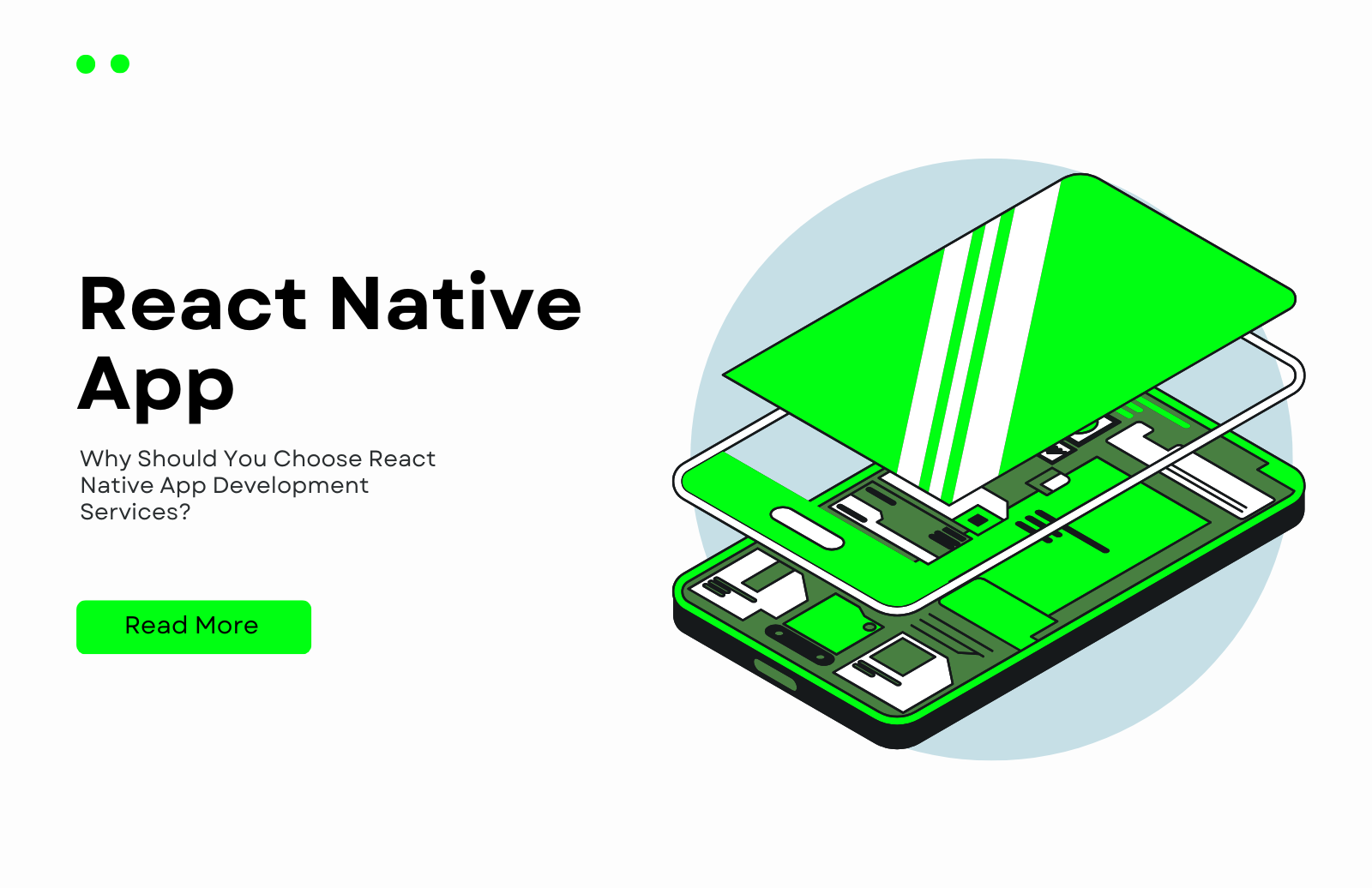Why Should You Choose React Native App Development Services?
React Native is an open-source framework that Facebook built on JavaScript and React, a UI library. It was first released in 2015 and has quickly become one of the top mobile development frameworks because it allows coding for both iOS and Android.
React Native App Development Services allow organizations to develop outstanding mobile applications optimized for multiple platforms without duplicative code. They combine the advantages of native development with React to give developers and companies a great tool for easily building apps.
Key Features of React Native
Before diving into the benefits, it's essential to understand what makes React Native a powerful choice for app development:
- Cross-Platform Development: The most significant and advantageous feature is developing an app for iOS and Android using the same code.
- Component-Based Architecture: Organisations can create reusable high-order compounds, objects, or components that contain their states, which can be used to make large, complex user interfaces online.
- Hot Reloading: By so doing, it enables developers to view the modifications made as they update the app Interface using this feature rather than having to rebuild the application interface every time.
- JavaScript & React: React Native is based on the JavaScript development language, one of the most popular and frequently used programming languages.
- Access to Native Features: The key advantage of React Native is that developers can use cameras, GPS, and push notifications from the platform using native modules as a part of android app development services.
Benefits of React Native App Development
Now, as we see, the benefits which make your project as a react native app development company, successful:
a) Cross-platform compatibility
It is one of the main advantages of React Native, and it is useful for explaining why you must hire React Native cross-platform developers. While you must develop one app for iOS and another for Android in native development, React Native lets you code once and deploy on both platforms. This translates to time savings and less development effort, resulting in faster time to market. React Native allows organizations to share almost 90% of the codebase across platforms, bringing consistency between OS versions and facilitating upgrades.
b) Cost Efficiency
Hiring a developer to build an iOS and Android native app might be expensive, which can be crazy for small businesses and start-ups. This is where React Native becomes easier, as developers can develop it once, making it more efficient and cost-effective than developing on separate platforms. This reduces the total amount, as you will only pay one development team to update the application on both.
c) High-Performance
Even though it may not seem like it, we can create apps using React Native that are as fast as a typical native app. A bridge in the center hooks JavaScript up with all other native parts, making it work faster. It is not possible to use pure native code, so it is a bit less optimal for gaming apps, which require absolutely no Java overhead. However, for most business and consumer applications, it is perfect. As a result, we have ample evidence that React Native is powerful enough to handle the duties of Instagram, Airbnb, Uber Eats, and other applications like these.
d) Instant Rollover
App launch today is as crucial as app-making in the growing pace of the mobile app market. React Native provides a way for your app to use hot reloading and shared code for iOS and Android, decreasing development time in the future. Additionally, React Native is packed with many built-in components, open-source libraries, and third-party plugins that reduce the time to develop the app.
e) Strong Community Support
React Native has many talented developers in its community. Thanks to a wealth of resources, libraries, and tutorials, developers can find help with anything they need. Because of this active community, you will have access to very useful new releases and complete documentation that helps developers keep up with the latest changes. The fact is that some developers are continuously contributing to React Native since it is open-source.
f) Indisputable Facebook Support
Facebook created React Native to build its mobile applications. Thanks to such support, React Native continues to receive updates and new developments. This gives developers and businesses confidence that the framework is mature and supported. The glory of React Native has evolved into something you can almost call production-ready, thanks to the money Facebook invested in the project, unlike other promising technologies.
g) Code Reusability
It facilitates the reuse of code, further reducing development time. This allows developers to write code that works for all platforms and reuse components anywhere in an app. This is especially handy when your app is large and complex or when UI consistency is essential. When the code is reusable, development will go faster than writing the code for all platforms or different parts of an application, as fewer bugs exist.
h) Hot Reload
Hot Reloading is a very useful feature in React Native. It allows developers to see what changes they have made in their code. This significantly improves the development process, as developers will not need to rewrite everything from scratch each time a new change is necessary. Regarding stakeholders, developers using it can immediately see how modifications affect the app and hence contribute to faster debugging.
i) Superior User Experience
React Native allows an app to appear, function, and perform like a native application using native components. Instant load speed, smooth animation, and high performance are achievable. Great user experience is integral to improving organizational performance; this is where an even better UI with React Native comes in. It also helps to work with native modules that connect the application with platform functionality, considerably improving the user experience.
React Native vs. Other Frameworks
Several other cross-platform frameworks besides React Native, such as Flutter, Xamarin, and Ionic. Here's a brief comparison for android app development services:
- React Native vs. Flutter: Flutter, developed by Google, offers strong performance for certain apps but has a smaller ecosystem and community support than React Native.
- React Native vs. Xamarin: Xamarin, owned by Microsoft, allows developers to use C# to build iOS and Android apps. While Xamarin provides more native access, React Native is faster and more cost-effective thanks to its JavaScript foundation.
- React Native vs. Ionic: Ionic builds apps using web technologies (HTML, CSS, JavaScript). Although Ionic offers faster development, React Native delivers superior performance because it uses native components instead of web views.
Conclusion
This paper shows React Native to be a stable and versatile platform for developing a mobile application. Through cross-platform development, low cost, high performance, and a short development cycle, React Native App Development Services can assist businesses in gaining more customers while maintaining high quality.
Thanks to Facebook's social support and a large number of developers, React Native can be expected to develop further. Whether you are a new react native app development company interested in creating your app rapidly or an existing enterprise that wants your team to focus on creating high-quality apps without investing in creating a totally new technology, React Native is a choice you should consider.









